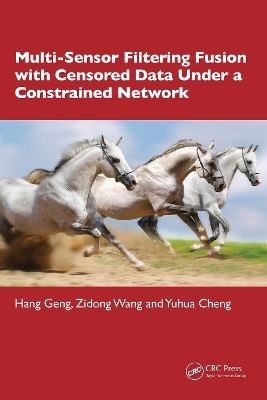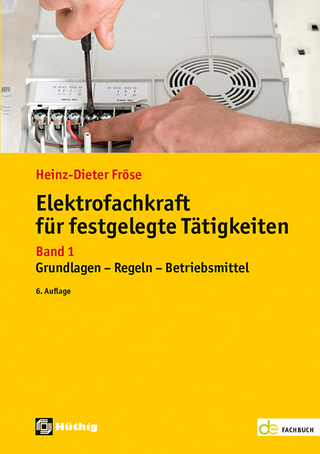
Multi-Sensor Filtering Fusion with Censored Data Under a Constrained Network Environment
CRC Press (Verlag)
9781032555508 (ISBN)
This book presents the up-to-date research developments and novel methodologies on multi-sensor filtering fusion (MSFF) for a class of complex systems subject to censored data under a constrained network environment. The contents of this book are divided into two parts covering centralized and distributed MSFF design methodologies. The work provides a framework of optimal centralized/distributed filter design and stability and performance analysis for the considered systems along with designed filters. Simulations presented in this book are implemented using MATLAB.
Features:
Includes concepts, backgrounds and models on censored data, filtering fusion and communication constraints.
Reviews case studies to provide clear engineering insights into the developed fusion theories and techniques.
Provides theoretic values and engineering insights of the censored data and constrained network.
Discusses performance evaluation of the presented multi-sensor fusion algorithms.
Explores promising research directions on future multi-sensor fusion.
This book is aimed at graduate students and researchers in networked control, sensor networks, and data fusion.
Hang Geng received the B.Sc. degree in electronic information engineering in 2011 from Civil Aviation Flight University of China, the M.Sc. degree in electrical engineering and the Ph.D. degree in control science and engineering in 2014 and 2017, respectively, from Northwestern Polytechnical University. He is currently an Associate Professor at the School of Automation Engineering, University of Electronic Science and Technology of China. He was a visiting Ph.D. candidate (2015−2016) and a Research Fellow (2019−2022) with the Department of Computer Science, Brunel University London, UK. From 2018 to 2019, he was a Post- Doctoral Fellow with the Department of Mechanical Engineering, University of Kansas, USA. His research interests include information fusion, fault diagnosis, and state estimation. Dr. Geng is currently serving an Associate Editor for CMES-Computer Modeling in Engineering & Science, a member of IEEE, a Senior Member of China Instrument and Control Society, a Member of Chinese Association of Automation, and a very active reviewer for many international journals. Zidong Wang is Professor of Dynamical Systems and Computing at Brunel University London, West London, United Kingdom. He was born in 1966 in Yangzhou, Jiangsu, China. He received the BSc degree in Mathematics in 1986 from Suzhou University, Suzhou, the MSc degree in Applied Mathematics in 1990 and the PhD degree in Electrical and Computer Engineering in 1994, both from Nanjing University of Science and Technology, Nanjing. Professor Wang's research interests include dynamical systems, signal processing, bioinformatics, control theory and applications. He has published more than 600 papers in refereed international journals. He was awarded the Humboldt research fellowship in 1996 from Alexander von Humboldt Foundation, the JSPS Research Fellowship in 1998 from Japan Society for the Promotion of Science, and the William Mong Visiting Research Fellowship in 2002 from the University of Hong Kong. He was a recipient of the State Natural Science Award from the State Council of China in 2014 and the Outstanding Science and Technology Development Awards (once in 2005 and twice in 1997) from the National Education Committee of China. Yuhua Chen received the Ph.D. degree in instrumentation science and technology in 2007 from Sichuan University. He is currently a Professor of instrument science and technology at the School of Automation Engineering, University of Electronic Science and Technology of China. From 2013 to 2014, he was a Guest Researcher at the University of Toronto, Canada. His research interests include electronic instrumentation, imaging/sensing for nondestructive evaluation, intelligent prognostics and health management of complex systems, and numerical modeling and simulation. Professor Cheng is currently serving as an Associate Editor for Neurocomputing and IEEE Transactions on Instrumentation and Measurement, and a very active reviewer for many international journals.
1.Introduction 2. Optimal Filtering for Networked Systems with Channel Fading and Measurement Censoring 3. Tobit Kalman Filter with Time-Correlated Multiplicative Sensor Noise Under Redundant Channel Transmission 4. State Estimation Under Non-Gaussian Lévy and Time-Correlated Additive Sensor Noise 5. Protocol-Based Filter Design Under Integral Measurement and Probabilistic Sensor Failure 6. Distributed Filtering Fusion over Packet-Delaying Networks Subject to Censored Data 7. Federated Filtering Fusion with Dead-Zone-Like Censoring and Dynamical Bias Under Round-Robin Protocol 8. Multi-Sensor Filtering Fusion with Parametric Uncertainty and Measurement Censoring 9. Protocol-Based Filtering Fusion for State-Saturated Systems with Dead-Zone-Like Censoring Under Deception Attacks 10. Variance-Constrained Filtering Fusion for Nonlinear Cyber-Physical Systems Under Stochastic Communication Protocol 11. Conclusion and Furture Topics
| Erscheinungsdatum | 20.07.2024 |
|---|---|
| Zusatzinfo | 15 Tables, black and white; 52 Line drawings, black and white; 52 Illustrations, black and white |
| Verlagsort | London |
| Sprache | englisch |
| Maße | 156 x 234 mm |
| Gewicht | 360 g |
| Themenwelt | Technik ► Elektrotechnik / Energietechnik |
| Technik ► Maschinenbau | |
| Technik ► Nachrichtentechnik | |
| Technik ► Umwelttechnik / Biotechnologie | |
| ISBN-13 | 9781032555508 / 9781032555508 |
| Zustand | Neuware |
| Informationen gemäß Produktsicherheitsverordnung (GPSR) | |
| Haben Sie eine Frage zum Produkt? |
aus dem Bereich


